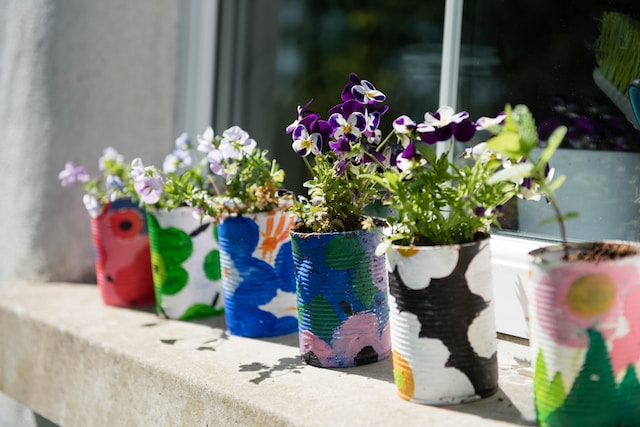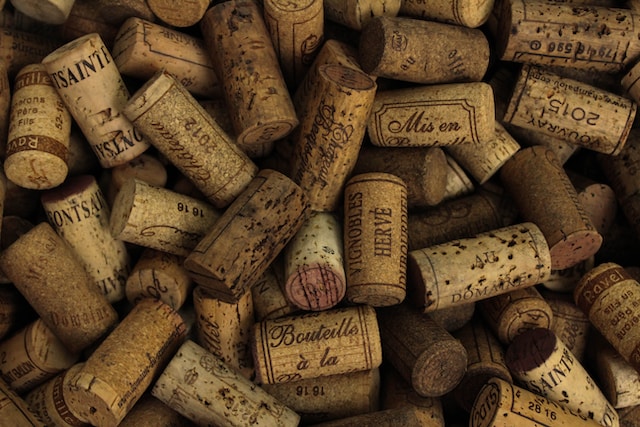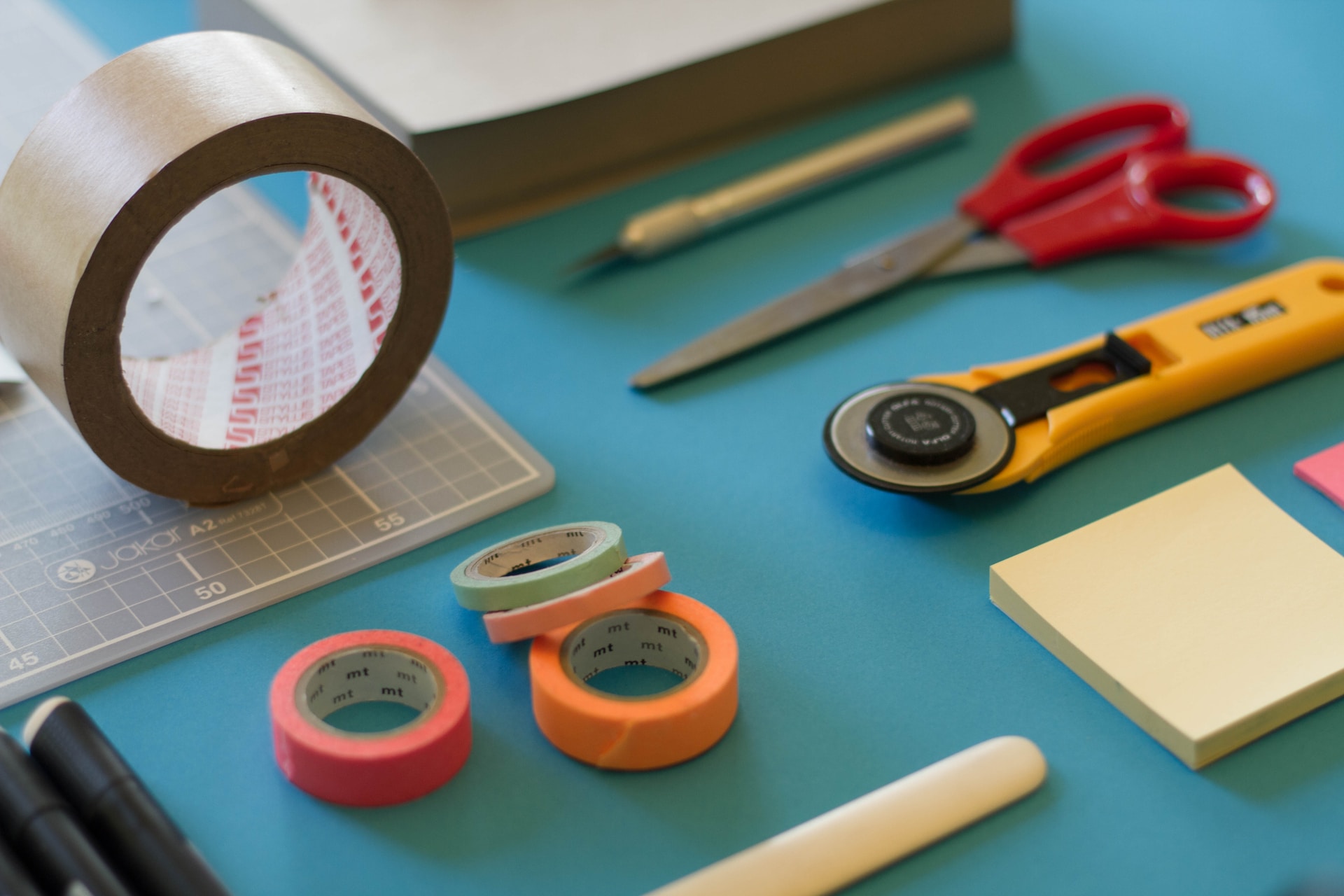What is Upcycling?
When it comes to craftmaking, upcycling can be a fun way to save money and make something new from something old. Upcycling is the creative process of repurposing old or discarded items into something of higher value. Unlike recycling, which breaks materials down, upcycling enhances their potential, reducing waste and contributing to a more sustainable lifestyle.
What are the environmental benefits of upcycling?
Reducing Landfill Waste
Upcycling plays a crucial role in waste reduction by diverting items from landfills, thereby mitigating the environmental impact of excessive waste.
Instead of discarding used or unwanted items, upcycling encourages individuals to reimagine and repurpose these materials.
This not only keeps items out of landfills but also extends their lifespan, contributing to a more sustainable waste management system.
The practice of upcycling aligns with the principles of the circular economy, where products and materials are reused and recycled rather than disposed of after a single use.
Conserving Resources
One of the fundamental environmental benefits of upcycling is the conservation of natural resources. By utilising existing materials, upcycling reduces the demand for new resources such as wood, metal, or textiles.
Traditional manufacturing processes involve the extraction and processing of raw materials, contributing to deforestation, resource depletion, and environmental degradation.
Upcycling, on the other hand, taps into the potential of items that have already served their initial purpose, minimising the need to exploit additional resources.
This approach aligns with the principles of sustainable resource management and promotes a more responsible and eco-friendly consumption pattern.
Energy Savings
Creating new things often takes a lot of energy; from getting raw materials to making and moving the final product. On the other hand, upcycling, giving old stuff a new purpose, uses way less energy than creating something entirely new.
Using less energy is a big deal for the environment, so upcycling is considered an eco-friendly choice. When you choose upcycled items, you’re helping to reduce the environmental impact of making new things.
This fits into the worldwide push to deal with climate change and encourages a more innovative, eco-friendly way of consuming. By making upcycling a part of your lifestyle, you’re making a real and positive impact on creating a greener and more sustainable future.
The Creative Aspect
Upcycling is not only about the environmental benefits. It has also become a platform for embracing creativity. It transforms the act of repurposing items into an art form, allowing individuals to think outside the conventional boundaries of consumption.
Each upcycling project is a blank canvas, a space for self-expression and innovation. It encourages the exploration of colours, textures, and designs, turning the mundane into something extraordinary.
The creative aspect of upcycling is a celebration of ingenuity, where individuals can infuse their personality and artistic flair into everyday objects, giving them new life and purpose.
Embracing Creativity
At its core, upcycling is not just a sustainable practice; it’s an invitation to embrace creativity. It provides a unique avenue for self-expression and innovation, allowing individuals to step into the role of creators and artists.
The process of reimagining and repurposing old items fosters a mindset of thinking creatively about the potential of materials that might otherwise be discarded.
Whether it’s breathing new life into worn-out clothes or turning discarded furniture into functional art pieces, upcycling empowers individuals to showcase their artistic vision, demonstrating that sustainability and creativity can go hand in hand.
Personalising Your Space
Upcycled items offer more than just a sustainable alternative; they bring a distinctive and personal touch to your living space. Whether it’s a refurbished piece of furniture with a history or a creatively repurposed decorative item, upcycled projects contribute to the uniqueness of your home.
The story behind each upcycled creation becomes a part of your living space, creating an environment that reflects your individuality. Personalising your space with upcycled items not only reduces environmental impact but also transforms your home into a canvas of memories and creativity.
Inspiring Others
Beyond personal satisfaction, upcycling has the power to inspire others to embark on their own creative and eco-conscious journeys. By sharing your upcycling projects on social media platforms, you become a source of inspiration for friends, family, and a wider community.
Your experiences and creations can ignite a passion for sustainability and creativity in others, encouraging them to explore the world of upcycling.
Simple and Fun Ideas to Get You Started

1. Tin Can Planters:
What you’ll need: Empty tin cans, paint (water-based or spray paint), soil, seeds or small plants and newspaper or a drop sheet.
Instructions: Clean and remove the labels from your cans. Wait for the cans to dry, then paint and decorate them however you wish. Once the paint has dried thoroughly, fill them with soil, and plant your favourite herbs or flowers.
Extra care: Ensure your plant is placed in a sunny spot, watered regularly and well displayed!
2. Upcycled Pillow Covers:
Materials: Old jerseys, hoodies or sweaters, scissors, and a pillow.
Instructions: Choose an old Jersey with a fun or interesting texture or pattern. Cut the sweater into the desired shape, leaving room around the shape for sewing. Sew the edges and slip it onto a pillow form for a cosy and unique pillow cover.
Extra Care: Ensure it fits securely for a snug and comfortable finish, then fluff it up and place it on your couch or your bed to be admired!
3. Wine Cork Coasters:

Materials: Used wine corks and a hot glue gun.
Instructions: Collect a bunch of wine corks or ask your family and friends to put some aside for you. You will need around 8 per coaster. Once you have enough, plan the size and shapes you plan to make the coasters. Allow your Glue gun to heat up, then apply glue to one side of a cork, press it against another cork, and repeat until you have the desired shape.
Extra Care: Ensure your coaster is fully set and cooled completely before use. Once the glue has set place your coaster on your table and enjoy!
4. Upcycled T-Shirt Tote Bag:
Materials: Old T-shirts, scissors, and a sewing kit (needle and thread or a sewing machine.
Instructions: Choose a funky old T-shirt and lay it flat on a surface, ensuring it has no wrinkles. Cut off the sleeves and the neckline of the t-shirt to create a square. Turn the T-shirt inside out and sew along the bottom of the T-shirt in a straight line to create the base. Cut strips from excess material to create the handles, and secure them evenly at the top of each side of the bag to create a reusable and trendy tote bag.
Extra Care: Once you have turned your bag in the right way, fill it with all your essentials and take it with you to show off your friendly and trendy approach to reducing waste.
5. Old Drawer into a Shelf:
Materials: An old drawer, paint, brackets, screws and a screwdriver or a power drill.
Instructions: Choose an old drawer that is sturdy and in good condition, even if it’s no longer part of a dresser. Clean the drawer thoroughly, removing any dirt or residue. If needed, sand the surface for better paint adherence. Apply paint to the drawer of your chosen colour that complements your decor. Once you have allowed the paint to dry completely, attach the appropriate brackets to the drawer and screw the drawer to the wall by screwing through the brackets into wall anchors or studs.
Extra Care: Use the drawer as a unique and practical shelf/ decor to display decorative items, books, or small house plants to add personality. Take a step back and admire your DIY creation.
Embracing Upcycling
Incorporating upcycling into your lifestyle offers more than just an environmentally conscious choice; it’s a gateway to a more creative and personalised way of living. Upcycling not only reduces landfill waste but also sparks creativity, turning each project into a celebration of ingenuity.
Whether you’re crafting Tin Can Planters, designing Upcycled Pillow Covers, creating Wine Cork Coasters, fashioning a T-shirt tote bag, or repurposing an Old Drawer into a Shelf, these simple and fun ideas showcase the limitless possibilities of upcycling.
By sharing your upcycling projects, you become a source of inspiration for friends, family, and a wider community. Your creations not only contribute to a more sustainable future but also inspire others to join the movement.
